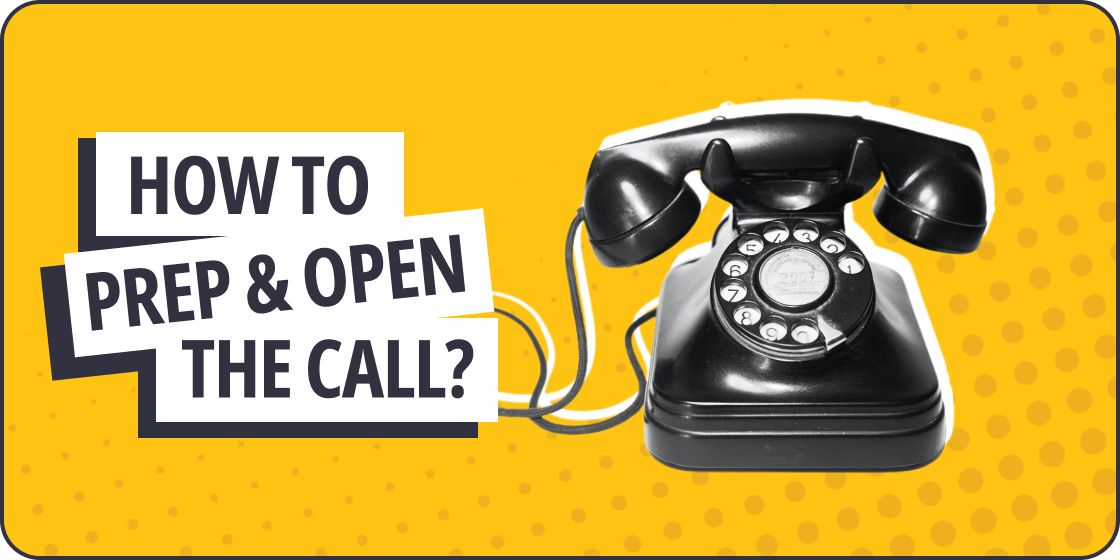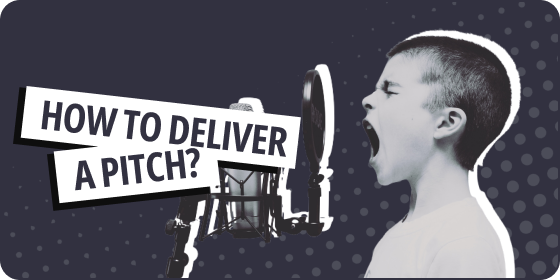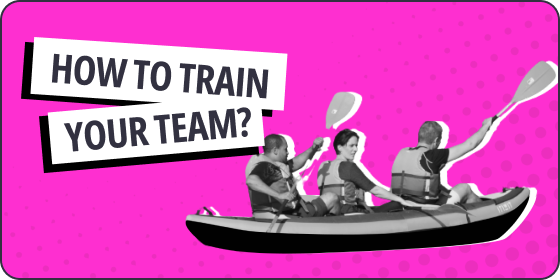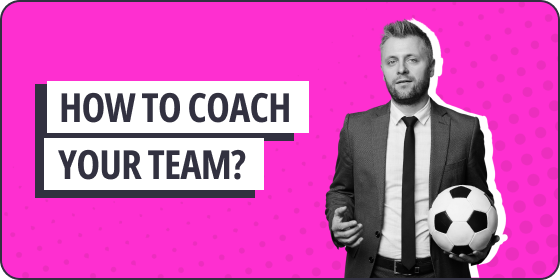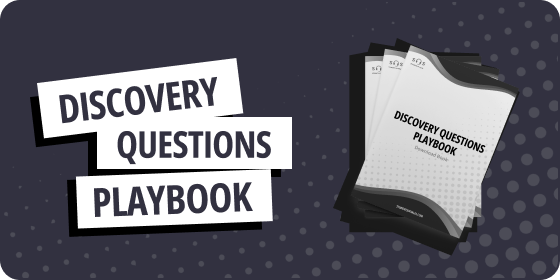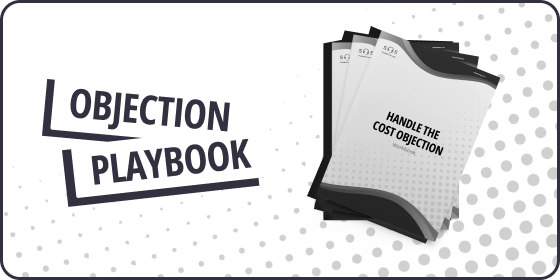What should I coach my Team on?

What should I coach my Team on?
Before reading this, please make sure you have read one of our prior blogs around ‘understanding the difference between training and coaching’. It’s crucial to understand the difference before asking yourself what should I coach my Team on? Coaching is all about improving on the application of your Sales Teams knowledge and skillsets.
Rather than focusing on transferring more knowledge to a salesperson, it can be even more effective to work on the knowledge and skillsets they already have. There’s an old expression that says ‘if it’s not broken, don’t fix it’. To anyone who is obsessed with personal development, this expression makes no sense. Everything we do and say as a salesperson can be improved on. Again, every industry is different, and each of the below skills carry more weight in some businesses, but the below can be used as a guideline on the key areas and sales skills to coach your Team on, as well as a few ideas for coaching sessions. There are 6 key sales skills that most leaders tend to focus on when it comes to coaching:
Prep – before an important upcoming meeting, ask your salesperson to present you their prep for the call. Do they have a solid agenda for the call? Do they understand the roles of the people on the call? Who is not on the call that will be involved in the decision-making process? What is your plan to get them involved? How do they plan to recap their last meeting? Are they setting a meaningful agenda for the call? What do they know about their business and their industry? What pain points have they identified? How would the business use your product/service? What are some hurdles or objections that might come up in the meeting? It all starts with prep. Coach your sales Team that preparing for a meeting is more important than doing a good job on the call/presentation.
There are so many ways to test/coach your sales Team on prep, but simply asking them to present you their plan is always a great session.
Rapport – We all know the importance of building a relationship in sales. For some salespeople building a relationship comes naturally, but for others, it’s hard work and requires a lot of coaching. The persona of your target market is a big factor here, but the majority of the time the first 2-4 minutes of every call should be building rapport with your prospect. The average salespeople out there will tend to focus on the weather your prospect is experiencing, what your prospect did at the weekend, where your prospect is located and sports in general. (hey, did you catch the game last night). All of those topics are surface level and shallow.
You need to be able to coach your Team on establishing deep and meaningful connections with their prospects. It’s important your Team knows the difference between general chit chat and establishing a real connection. Ahead of a big meeting, you should role play the rapport your salesperson plans to use in the meeting. Do they have a plan for the rapport? Coaching them on the first 5 minutes of every call and the relationships they are building can create wonderful long-term habits that will reap great rewards.
Discovery – This is a broad term, so allow me to be more specific. How are your salespeople understanding their prospects businesses? How are they finding the prospects pain? How are they finding the gaps they plan to sell into? A great coaching exercise would be to pull a recent call, and listen to it with your salesperson. You both should write down all of the discovery questions that where asked, and talk about them.
What were the good questions? What questions could we have skipped? What questions did we not ask them? Based on their prep, how could they have gone about this discovery differently? Did they tell any success stories that the prospect connected with? Based on the answers from the prospect, do they have a plan on how to sell to this business? Another great session would be to role play the discovery section of the next big call the sales person has. The discovery has widely become the most important part of the selling experience for the seller. If they nail this part of the process, it dramatically increases your chances of generating a sale.
Listening – Listening is one of the most underrated sales skills. It’s also one of the most least coached from a leadership perspective. Listening is very much a muscle that needs to be developed. Often salespeople are desperate to ask their next question, or move onto the next part of the call, but the best sales people truly listen to their prospects. Average sales people listen to respond, top flight sales professionals listen to understand. Instead of just responding to what the prospect just said, make it a point that the prospect feels like they are being listened to. Instead of just responding with something surface level, ask them a deeper question on the point they just made. Not only does this let the prospect know you were listening, it also shows the prospect you understand their situation.
Active listening is a huge skill that is developed in sales, but it’s only developed by coaching on it. Listen to one of your salespersons calls with them. Did they show signs of active listening? Did they pause briefly to understand and acknowledge the prospect? Did they pick up on any subtle cues by not being too quick to respond? Did they interrupt the prospect at all? If a prospect feels that they are being listened to, it can lead to a much more positive interaction, and often they share more to people who have demonstrated that they are listening. Could a salesperson prove that they were attentively listening based on the notes they took on a call?
Linking – In short, the term linking is used to describe the salespersons’ ability to connect the prospects wants/needs with the benefits/advantages of your product and service. Linking the product/service you are selling, to their individual needs as a business. It’s important to note than a well-run discovery sets you up for success with linking. However, linking becomes much harder without understanding the prospects pain/needs. The general rule of modern selling is to not start selling or linking your product to their pain, until you truly understand that it is a good fit based on what they need. A great way to understand linking properly, is to think of a mattress salesperson. What are they selling? Here’s a clue, they are not selling mattresses. In fact, they are selling a good night sleep. If you already had a mattress, and you walked into a mattress store, clearly the old mattress is impacting your sleep and that’s why you need a new one. In other words, don’t focus on what your product/service does, focus on the problem it solves.
The coaching points here is are your salespeople ‘feature selling’? Are they just telling your prospects what your product does? Instead of focusing on understanding the prospects problems and presenting them some potential solutions to those problems. Often some great coaching sessions on this topic can be listening to one of the salespersons calls and identifying when and how they are pitching the product/service. Are they pitching too soon without understanding their prospects needs? Are they selling the features of your product/service instead of the problems it solves?
Negotiating – often salespeople find themselves in a negotiation, but because they want the deal more than the prospect wants your product or service, the majority of the time they go about it the wrong way. Let’s start there, you cannot make it seem like you want the deal too much. Of course, that might be true, but the prospect should never feel that way. It’s important to coach your salesperson on each negotiation they have. Why do you think the customer wants to negotiate? It’s because they are interested. A negotiation is not a bad thing, it’s a great thing.
Every negotiation is a two-way street. Coach your salespeople on if they are going to give something away, what are they asking for in return? Coach them the value on a win-win approach. A successful negotiation is finding a way to meet the needs of both parties. To achieve this, listening plays a huge role. Is the prospect asking for a better price because of budget reasons? Or are they asking for a better price because they do not believe your product is a good fit for them, and they are trying to minimize their risk? Understanding the difference between those two examples is a great coaching opportunity. For a leader, it’s important that you coach your Team when they get to a negotiation, what are the best practices. Coach them on what they should show flexibility on, how they should go about it, and how quickly they should show flexibility.
Did they get commitment from the prospect before committing to any flexibility? Coach them to understand their prospects needs before trying to negotiate and address them. Truly, the best way to coach someone on negotiation, is to learn from failure. Every time they have a negotiation, you should be pulling the call, or breaking down what happened step by step. Role play with them. How could they have gone about it differently? This is arguably one of the hardest skills to coach on, but it can also be the most rewarding.
Whatever you coach your salesperson on, the most important thing is getting commitment from them to apply the coaching, and then put in a follow up process. “OK Brian, what were your key takeaways from our coaching session today”? Once they give you their answer – ‘OK great, by this time next week, I want you to show me how you applied your takeaways”. Then book in some time to ensure this has been done. This is truly how to make a difference as a leader.








